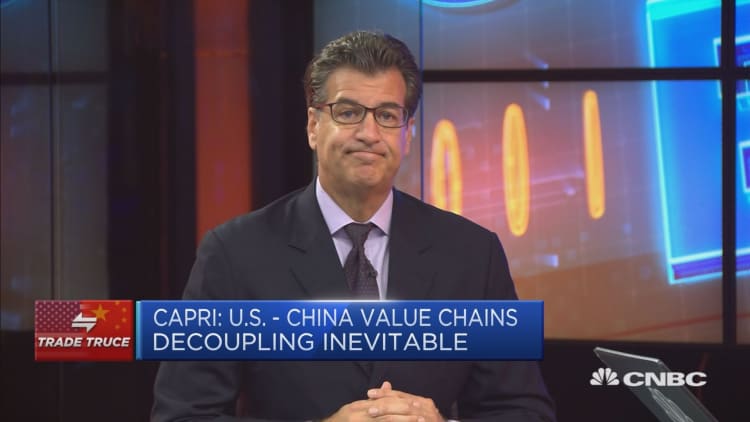A Canadian man sentenced to 15 years for drug smuggling in China has been quickly retried and given a death sentence in a move that may be a response to the legal tensions between China and Canada following the Dec. 1 arrest of the chief financial officer of tech company Huawei.
Canadian Robert Schellenberg was arrested in 2014 and convicted and sentenced to 15 years two months ago for conspiring to smuggle 489 pounds of amphetamine out of China. He denied the allegations and appealed the sentence.
Then in December, he was given only four days notice that he would be retried. The High Court of Liaoning Province, saying his initial sentence was not tough enough, then held another, much faster retrial and sentenced him to death. A Chinese foreign ministry spokesman has said the court was within the bounds of local law in quickly retrying the case.
Legal experts told The Wall Street Journal that the retrial was likely linked to tensions following Huawei CFO Meng Wanzhou's arrest in Vancouver on Dec. 1. The U.S. government had sought to detain Meng on fraud charges related to deals made by the company with Iran, a sanctioned country. It's unclear, however, if Canada will extradite Meng to the U.S. to face these charges, as the Ottawa courts grapple with escalating diplomatic situation surrounding the arrest. As many as 13 Canadians have been arrested in China since Meng's arrest.
Huawei has denied the charges against Meng and has maintained that sanctions violations and other accusations of spying and IP theft by the U.S. government have been politically motivated. The Justice Department has until the end of January to file a formal extradition request in Meng's case.
In a separate case, Huawei has backed away from another executive who was arrested last week on spying charges in Poland.
Huawei said it had fired Wang Weijing for bringing the company into "disrepute," after he was arrested on charges of colluding with local government officials to spy within Poland. The Wang case is also significant since Huawei has in the past countered U.S. government claims that it allows spying activities on behalf of the Chinese government with the fact that none of its executives had been formally arrested for spying. The company quickly distanced itself from the allegations against Wang, however, saying his actions "have no relation to the company."



